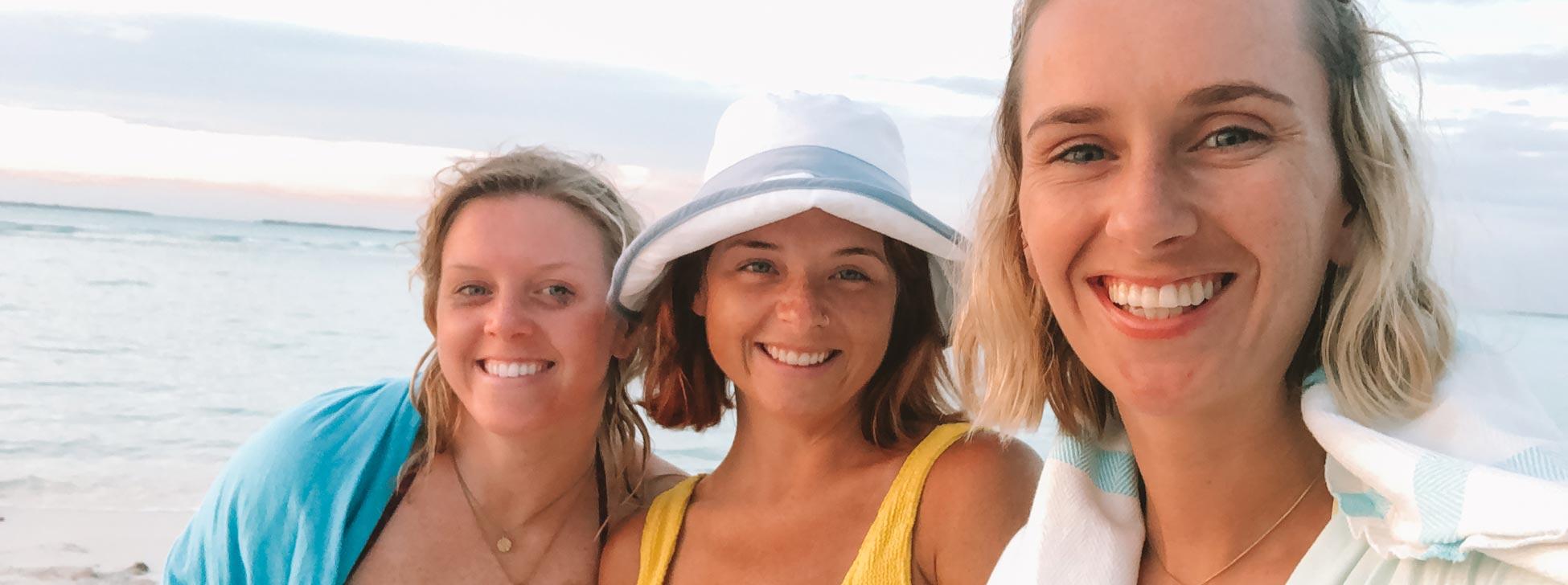My attempt to lift my suitcase into the taxi was a feeble and unsuccessful one. I politely beckoned the driver and asked him to put it in the trunk before heading to the airport in Bangkok. He complied, but it was too late—I had ripped open the site of my MRI breast biopsy.
Blood seeped from underneath the skin-tight bandage on the outer curve of my right breast. I frantically tried to keep the wound under pressure by copping a feel the entirety of the ride; I can only imagine what the driver was thinking.
I didn’t know at the time that a few months later, there would be no breasts to grasp. Instead, fake, silicone implants would sit in lieu of my real ones.
Living abroad is hard enough. Language barriers can be constant hurdles. Finding people to connect with while travelling makes you feel as lost as a new kid at lunchtime. Even deciding which cultural attractions to frequent in your free time can seem like a daunting endeavour. All of these things are minuscule, however, in comparison to receiving an unwanted heath diagnosis while living overseas.
Let me explain.
I found out I had a BRCA1 genetic mutation in January 2018. The mutation is linked with an increased risk of many cancers, including breast cancer. Genetic testing seemed like a logical thing to do considering my grandmother died of breast cancer and my aunt had it multiple times. My father was wary of these many red flags, so he got tested. His results came back positive. I was tested for the mutation while I was home for Christmas and found out I was positive for the BRCA1 mutation, as well.
At the time of my diagnosis, I had just started working as a marketing manager for Mad Monkey Hostels, a socially responsible hostel in Southeast Asia and Australia. Before that I had been living in Bangkok for years, working as the editor for a travel website and later at an expat magazine.
I was growing bored with the city, though, and getting this new marketing role based in Phnom Penh was the most exciting thing to happen to me in a while. But that feeling was quickly overshadowed by my diagnosis.
Then, a few weeks after returning to Southeast Asia, I was told that I had a mutation.
A Thai doctor’s hands felt back and forth over a small lump before informing me that an MRI was needed.
In Bangkok, a Thai doctor’s hands felt back and forth over a small lump before informing me that an MRI was needed. I then ventured to an international hospital a few streets down from Soi Cowboy, one of Bangkok’s most infamous red-light districts.
The black screen reading my MRI was lit up by three large masses that made me feel sick on the spot. I longed for the presence of my friends or family members; for a familiar face to tell me everything was going to be okay.
The ominous tumours indicated that I would need to get biopsies to see if they were cancerous or not. Thankfully, they were not.
However, after the traumatic and bloody taxi ride following my MRI breast biopsy, coupled with the breast cancer scare in Bangkok, I decided that I wanted to have a prophylactic double mastectomy.
For a fleeting moment, I considered having the procedure in Bangkok. I loved the idea of staying and working in Asia during my recovery, but I knew I couldn’t have the surgery alone. I also knew my parents would get on the first red-eye and stay as long as they could—butI was not going to make all three of us put our careers on hold for the mastectomy. I also factored the need for a comfortable place to stay during recovery, and the high possibility of needing not one, but two surgeries.
My imagination began piling up the hefty bills. At 25, I was still covered under my parent’s insurance back home, which would cover most of the cost of the mastectomy. If I had the procedure in Bangkok, I would have to pay the entirety of the bill up front and work to get that money back, and the mutation was already taking a toll on my wallet. Each visit to the doctor ended with me paying thousands of dollars out of pocket.
With so many more cons than pros, I finally flew to Kansas a few months later, and had a double mastectomy on July 6, 2018.
If you find yourself in a similar situation, whatever the diagnosis may be, allow yourself a day or two to feel sorry for yourself; then, get to work. There are many online support groups for all types of diagnoses, which are helpful when living abroad. Mine was FORCE. Utilize these. Also, reach out to your community and see if anyone is going through anything similar. You are going to need support from your friends at home and abroad. Having a medical scare can make you feel isolated in addition to being scared; having a support system can help alleviate this anxiety.
I have just had a second, fat-grafting surgery to help with rippling over the implants; because the skin is paper thin, it makes every dip in the implants visible. As soon as I am healed, I will be booking the cheapest red-eye I can find and make my way back to Phnom Penh.

